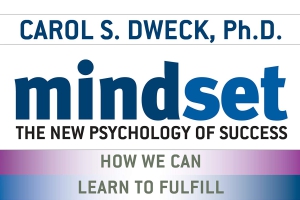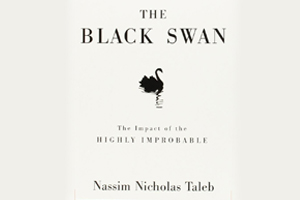In the book, “Richer, Wiser, Happier: How the World’s Greatest Investors Win in Markets and Life,” William Green skillfully highlights the investment commandments of some of the greatest investors of our times. Through his interviews with these investing greats, we learn not just how to become rich but also how to improve the way we think and reach decisions.
Key Takeaways
- In investing, patience is your biggest virtue. You can be a successful investor only if you are patient with your investments.
- Sentiment and behaviour are your biggest enemies. In order to succeed at investing, you must be able to control your emotions and make rational decisions.
- Trying to predict the future is redundant. Instead, you should focus on trying to learn from the past.
- A successful investment mantra is to buy cheap. A better mantra is to buy quality at cheap prices.
- Always question whether the price that you are paying for an investment is reasonable.
- Whether in life or in investing, there is no substitute for hard work and discipline.
Lessons from Monish Pabrai
When it comes to investing, the question to ask is not, “how to make money”, but “how to compound money”. Pabrai’s approach to the challenge of becoming a billionaire holds important lessons for us all, not just as investors but in every area of life. He didn’t attempt to reinvent the wheel by, say, devising a new algorithm to exploit subtle pricing anomalies in the markets. Instead, he identified the most skillful player of this particular game, analyzed why he was so successful, then copied his approach with scrupulous attention to detail. Pabrai’s term for this process is cloning. We could also call it modeling, mimicry, or replication. His core commandments include:
- You should invest your money in a company only if it falls within your “circle of competence.” This means that you should make an investment only when you truly understand the business.
- The company has to trade at a large enough discount to its underlying value to provide a significant margin of safety.
- It is more important to buy quality businesses than to simply buy cheap businesses.
- The company’s financial statements should be clear and simple.
Lessons from John Templeton
The only way you can make money is if you buy at a time when other people are desperately trying to sell. This means buying at the “point of maximum pessimism.” Like Buffett and Munger, he had an unemotional appreciation for a mispriced bet that offered an asymmetry between risk and reward. His core commandments include:
- Do not let your emotions get the better of you. Emotions can make you become excessively careless and optimistic when you make big profits and get excessively pessimistic and too cautious when you make big losses.
- Beware of your own ignorance. Many people buy something with only the tiniest amount of information. They just don’t understand what it is that they are buying. This is a big mistake.
- Always diversify your portfolio. It is the best kind of protection that you can give your portfolio.
- Successful investing requires patience.
- The best way to find bargains is to study whichever assets have performed very badly in the past five years. Once you identify these assets, then you need to assess whether the cause of those woes is temporary or permanent.
- One of the most important things you need to do as an investor is not to chase fads.
Howard Marks
In a world where nothing is stable or dependable and almost anything can happen, the first rule of the road is to be honest with yourself and about your limitations and vulnerabilities. Marks believed that if you want to add value as an investor, you should avoid the most efficient markets and focus exclusively on less efficient ones.
The single most reliable route to investment riches is to ‘buy cheap’ and the greatest risk is to overpay for an investment. Thus, the essential question to ask about any potential investment should be “is it cheap?” Some of his core commandments include:
- It is almost impossible to predict the future. However, you can always learn from the past.
- We can’t change the market environment. But we can control our response, turning more defensive or aggressive depending on the climate.
- Markets move in cycles and thus, cycles will always reverse. By studying patterns of the past, you can take advantage of the cyclicality by behaving countercyclically.
- Both in markets and life, the goal isn’t to embrace risk or eschew it, but to bear it intelligently while never forgetting the possibility of an unpleasant outcome.
Five Rules of resilience as exemplified by Graham, Jean-Marie Eveillard, Warren Buffet, Irving Kahn, and Matthew McLennan
- First, you need to respect uncertainty.
- Second, to achieve resilience, it’s imperative to reduce or eliminate debt, avoid leverage, and beware of excessive expenses.
- Third, instead of fixating on short-term gains or beating benchmarks, you should place greater emphasis on becoming shock resistant, avoiding ruin, and staying in the game.
- Fourth, beware of overconfidence and complacency.
- Fifth, as informed realists, you should be keenly aware of your exposure to risk and should always require a margin of safety.
Lessons from Joel Greenblatt
When it comes to investing, the number of choices available can make your head spin. Thus, in practical terms, the ability to reduce complexity is immensely valuable. This means that simplification is a very important strategy. It is best to have a simple way of looking at things – this will help you stick to your strategy during market ups and downs.
The most important thing that you as an investor can do is to value businesses and then pay much less for them than they’re worth. Always remember that while buying cheap is great, buying good businesses cheap is even better. Further, it is not enough to find a smart strategy that stacks the odds in your favor over the long-term. You also need the discipline and tenacity to apply that strategy consistently, especially when it’s most uncomfortable.
Lessons from Will Danoff
The bottomline is that “stocks follow earnings.” With that principle in mind, you should relentlessly search for the “best-of-breed businesses” that are expected to “grow to be bigger in five years.” The principle behind this is simple. If a company can double its earnings per share in the next five years, then the stock price is also likely to more or less double.
In their own way, Greenblatt, Buffett, Bogle, Danoff, and Miller have all been seekers of simplicity. They believe that all you need is a simple and consistent investment strategy that works well over time—one that you understand and believe in strongly enough that you will adhere to it faithfully through good times and bad.
Lessons from Nick Sleep and Qais “Zak” Zakaria
Quality trumps everything. To become a successful investor all you need to do is deep research and create a concentrated portfolio of really high-quality companies. Some of their core commandments include:
- Extraordinary advantages can accrue to investors with the discipline and patience to resist the temptations of instant gratification. In a high-speed era dominated by short-term thinking, this capacity to defer rewards is one of the most powerful contributors to success, not only in markets, but in business and life.
- It is not necessary to behave unethically or unscrupulously to achieve spectacular success.
- In a world that’s increasingly geared toward short-termism and instant gratification, a tremendous advantage can be gained by those who move consistently in the opposite direction.
Lessons from Tom Gayner
Great success tends to come from small, incremental advances and improvements sustained over long stretches of time. It is important to accept that you cannot control the outcome. However, you can control the effort and the dedication and the giving of one hundred percent of yourself to the task at hand. Some of his core commandments include:
- You do not need a secret sauce or a super high IQ to become a success. What you need is a selection of sensible habits that are directionally correct and sustainable—habits that give you a marginal advantage that will compound over time.
- Always look for profitable businesses with good returns on capital and not too much leverage.
- The management team of a company must have “equal measures of talent and integrity.”
- The company should have ample opportunity to reinvest its profits at handsome rates of return.
- The stock must be available at a reasonable price.
Lessons from Jeff Vinik, Paul Lountzis, and Laura Geritz
Vink has used the same consistent approach to investing throughout his career, which is to focus on individual companies with good earnings outlooks that are selling at very reasonable valuations. He also believes that there is no substitute for hard work. Paul Lountzis too, is a consummate practitioner of continuous learning. Lountzis is a ravenous consumer of insights from the titans of business and investing. He adores books about entrepreneurs. As he listens, he keeps pondering the same underlying questions: “What am I missing? Who’s doing something that no one else is doing? How can I get better?” His aim is never to replicate other investors’ behavior. “You can’t mimic them because you’re not them,” he says. “Learn it and adapt it and modify it into your own process.” Similarly, Laura Geritz also believes that it is important to build an informational advantage. The gap between reality and perception offers an ideal opportunity to invest for the long haul.
Lessons from Charlie Munger
He strives consistently to reduce his capacity for “foolish thinking,” “idiotic behavior,” “unoriginal error,” and “standard stupidities.” This can be achieved by looking at a problem backwards. Identify the disaster areas and then try to figure out what went wrong. Once you know what went wrong you can actively take steps to avoid the same errors.
Lessons from Ed Thorp, Jason Karp, Bill Miller, and Arnold Van Den Berg
Ed Thorps believes that beyond investing, it is important to realise that problems tend to arise when you become so consumed by the pursuit of money and possessions that you lose sight of what matters more. Thus, you should always behave decently and avoid harming others. Both Jason Karp and Bill Miller are of the opinion that resilience is a prerequisite for success in markets and life. Thus, it is important to focus on what you can control and try to let go of the rest. Arnold Van Den Berg sums it perfectly well with his philosophy - if your life is more important than your principles, you sacrifice your principles. If your principles are more important than your life, you sacrifice your life. Van Den Berg developed a consistent investment methodology that was infused with common sense. Among other things, he analyzed hundreds of acquisitions to construct a record of what sophisticated private buyers would pay for various types of business. He then formulated a few practical rules of thumb that he refused to violate. For example, he wouldn’t invest in any stock unless it traded for at least 50 percent less than its private market value. And whenever a stock rose to 80 percent of its private market value, he insisted on selling. His unswerving discipline and rigorous focus on valuations kept him on the right track.
The book undoubtedly packs endless investment wisdom and tells us how to become better investors. Many of the practices highlighted can be easily followed by individual investors. On the other hand, there are many which would simply prove to be challenging to follow. The good thing is that in addition to practicing the principles highlighted in the book you can also choose to invest via vehicles that practice these principles. An ideal investment vehicle would be mutual funds. These funds pool investor money and invest it in different asset classes based on a pre-determined investment criteria. Since they follow a certain investment strategy, they are less prone to behavioural biases. Further, there are certain long-term mutual fund schemes that invest in quality companies at cheap valuations and then stay invested patiently to reap the benefits of the investment. So, through a mutual fund investment, you get to minimise behavioural biases, you get patient and disciplined long-term investing, and you get to buy investments at a reasonable price. In that regard, mutual fund investments can help you follow most of the principles highlighted in the book.
An investor education initiative
All Mutual Fund Investors have to go through a onetime KYC process. Investor should deal only with Registered Mutual Fund (RMF). For more info on KYC, RMF and procedure to lodge/redress any complaints – please visit onhttps://www.edelweissmf.com/kyc-norms
MUTUAL FUND INVESTMENTS ARE SUBJECT TO MARKET RISKS, READ ALL SCHEME RELATED DOCUMENTS CAREFULLY.
Trending Books
MUTUAL FUND INVESTMENTS ARE SUBJECT TO MARKET RISKS, READ ALL SCHEME RELATED DOCUMENTS CAREFULLY.



















